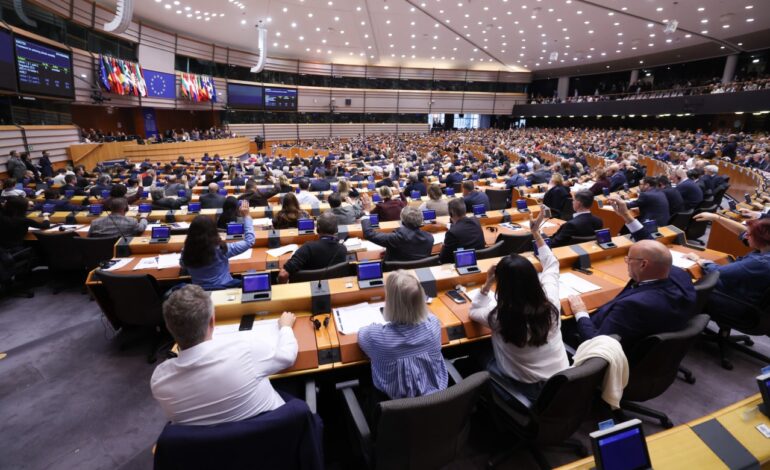Europe Takes Steps to Address Economic Challenges Amid New Regulations

In a significant shift, the European Union (EU) is beginning to implement milder regulations and embrace a more pro-business mindset as it faces ongoing economic challenges. This change, which could reshape the economic landscape of the region, was highlighted during a recent conference in Brussels attended by key policymakers and business leaders.
The European Commission announced plans to introduce new policies aimed at fostering economic growth while ensuring member states can effectively navigate the complexities of the global market. Starting from January 1, 2024, these measures are expected to streamline operations within the Single Market, allowing businesses to operate more efficiently across the 27 member states.
One of the focal points of the new approach is the commitment to reduce bureaucratic hurdles that have historically stifled innovation. The European Central Bank (ECB) has indicated that it will support these efforts by maintaining favorable monetary policies, potentially leading to growth rates of around 2.5% in the coming years. By fostering a more conducive environment for businesses, EU leaders hope to attract investments and stimulate job creation.
Moreover, the EU’s renewed focus on pro-business principles comes in response to increasing competition from other global economic powers. The decision to adopt a more flexible regulatory framework is seen as essential for maintaining the EU’s competitive edge, particularly in technology and sustainable energy sectors.
“We must adapt to the changing global landscape,” said Ursula von der Leyen, President of the European Commission, emphasizing the need for resilience and growth.
This shift in policy is also reflective of a broader recognition among EU officials and member states that the region’s economic stability requires proactive measures. With the economic fallout from recent global events, including supply chain disruptions and inflationary pressures, the EU is taking concrete steps to safeguard its economic future.
Financial analysts view this initiative as a turning point for the EU. The potential economic impact could be substantial, with estimates suggesting that the new policies could unlock investments exceeding €1 trillion over the next decade. Such investments are critical for driving innovation and addressing the pressing challenges of climate change and technological advancement.
As the EU embarks on this transformative journey, it remains crucial for member states to work collaboratively to ensure the successful implementation of these regulations. The commitment to a unified approach will be key in navigating the complexities of the global economy and securing long-term stability.
In conclusion, the European Union’s recent policy shifts signal a newfound recognition of the economic challenges it faces. By embracing a more business-friendly environment, the EU aims to stimulate growth, foster innovation, and maintain a competitive edge in an increasingly dynamic global market. The coming months will be pivotal in determining the effectiveness of these measures and their impact on the economic landscape of the region.






